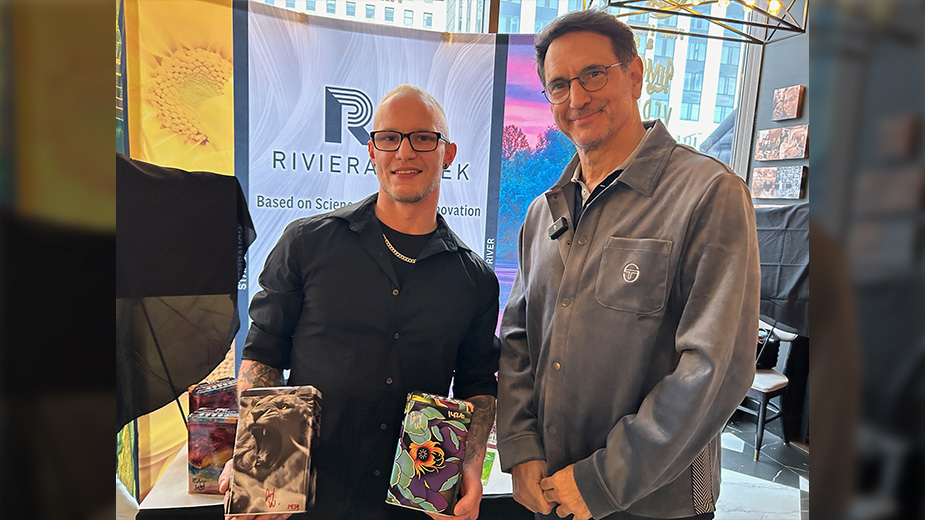Portman Hears about Unfair Trade, Workforce Needs
BOARDMAN, Ohio – Using the General Extrusions plant as a backdrop, U.S. Sen. Rob Portman, R-Ohio, Thursday updated a small group of manufacturers and university administrators of his efforts to thwart unfair trade practices and provide better workforce training.
It was the stop in the Mahoning Valley of the junior senator from Ohio’s 1,500-mile “jobs tour” during which he visited 13 counties in five days, today being the last day.
Unspoken was the fact Portman is projected to have tough battle for re-election next year against former Gov. Ted Strickland, a Democrat. Portman took the obligatory tour of the plant floor, escorted by General Extrusions Inc. President Herb Schuler Jr. where he talked with workers.
The stop at General Extrusions Inc., sponsored by the Youngstown Warren Regional Chamber and hosted by Schuler, was billed as a round table.
In his opening remarks, Portman lamented the time it takes the United States to react to unfair trade practices, especially Chinese dumping of metal goods (selling them here at below its manufacturers’ costs) and illegal subsidies. “By the time you get relief,” the senator said, “it’s too late. We’re trying to speed up [U.S. International Trade Commission enforcement].”
He called China’s devaluation of the yuan Tuesday “currency manipulation” and pointed to his amendment to combat artificial exchange rates falling “two votes short” of passage earlier this summer. “We need to add more teeth,” he said, to enforcement mechanisms.
“Our tax code is broken and Washington is doing nothing to fix it,” Portman declared. Instead of raising the tax on gasoline that funds highways and bridges – last raised in 1993, to 18.4 cents a gallon on gasoline, 24.4 cents on diesel fuel – he would allow U.S. companies to repatriate $2 trillion in profits parked abroad and use the taxes levied to pay for much needed infrastructure.
Among those seated around the table were Schuler; James Tressel, president of Youngstown State University; YSU Provost Martin Abraham; Gregg Sturrus, dean of the YSU STEM College; Eastern Gateway Community College President Jimmie Bruce; the new dean of the Trumbull campus of Kent State University, Lance Grahn; Jessica Borza, executive director of the Mahoning Valley Manufacturers Coalition; Werner Gottlieb, president and CEO of Altronic LLC, Girard, Claudia Kovach, vice president, City Machine Technologies Inc., Youngstown; David Deibel, president and CEO of Boardman Steel Inc., Columbiana; Tom Hutch, president and CEO of Aerolite Extrusion Co., Boardman; Bob Messaros, president and CEO of Commercial Metal Forming, Youngstown; and Bob Christoff, human resources manager at Dearing Compressor & Pump Co., Boardman.
While he favors “fair trade,” Schuler related how long it took his company to win its case five years ago against the import of 600 million to 700 million pounds of extruded aluminum. The U.S. International Trade Commission imposed a countervailing tariff against China plus an anti-dumping duty.
To which Portman noted that China is willing to absorb “loss leaders” as it tries to gain market share. China also circumvents trade agreements by shipping its products to a third country such as Vietnam, Malaysia or Indonesia, he said. There Vietnamese workers, Malays or Indonesians make cosmetic improvements before shipping such products to the United States.
Aerolite’s Hutch related how Chinese extruders took shaped aluminum, the basic 6,000 series, shipped it to Vietnam where workers there changed the chemistry so it was 5,000 series, called it “added value” and sent it to the United States.
This practice disguises the country of origin, Portman said, and called for better enforcement of customs at U.S. ports.
Kovach raised a favorite topic of area manufacturers: where to recruit the next generation of qualified manufacturing workers.
Progress has been made on this front, those at the table agreed, as they reflected how school curriculums have changed. Before the Mahoning Valley Manufacturers Coalition was formed, Borza reminded the table, only 5% of job training funds were devoted to manufacturing. Today it’s 35%.
Dearing Compressor’s Christoff mentioned the “educator in the workforce program” where middle school and high school teachers visit manufacturing plants, going out on the shop floors to meet workers and supervisors one-on-one and learn firsthand the skills their students will need.
Commercial Metal Forming’s Messaros said students in grades five through eight have “insufficient experience” in middle school learning about making things. More needs to be done about increasing their awareness of the jobs that could await them, he said, a point Kent State’s Grahn echoed.
Portman informed the table that some 47 programs to train workers or update their skills exist, only four of which “have measurable outcomes,” he said, citing the General Accountability Office. The United States spends between $15 billion and $18 billion annually on workforce development.
Wiser spending on workforce development, not increased funding, is the answer, he said afterward, adding that some programs prepare participants for jobs that no longer exist.
Altronic’s Gottlieb stated his company doesn’t need workers on the floor who have four-year degrees, especially on the production side. “We don’t need more college degrees for production,” he said. What Altronic does need are candidates familiar with Excel spreadsheets and other computer programs.
Gottlieb reminded Portman that Western manufacturers need better protection of their intellectual property, especially patents, and addressed what he sees as the need to reform the U.S. Patent Office and it grants patents.
Speaking about IT protection, the president of Altronic asked, “Why is so easy for the Chinese to copy and never get sanctioned?”
On the patent office, Gottlieb observed, “There’s not enough scrutiny before a patent is issued. … Too many patents are awarded that aren’t worth anything.”
Portman agreed about “ ’overpatenting.’ That hurts the economy and costs us more” because the holder collects royalties for a toll or process that shouldn’t have been granted protection in the first place. He was critical of “lawyers who are patent trolls.”
A patent troll is a person or company that misuses patents as a business strategy. The patent is often obtained at an auction held by a company in bankruptcy trying to liquidate its assets. That allows the new holder to sue companies it accuses of infringement or simply keep it and not use it to hinder or stall other companies’ productivity.
Portman also noted that China has laws on its books that protect foreign patents but never enforces them.
Commercial Metal Forming’s Messaros observed that both the U.S. Department of Labor and JobsOhio “are so fixated on the number of new jobs [created]” that neither adequately supports those who have jobs in updating and improving their skills. “The state’s got to come to some sort of balance on the sustainability of jobs,” he told Portman.
Portman ended the event on an upbeat note, complimenting the employers and college administrators on reshaping manufacturing in the Valley. Instead of dwelling on the past, they are the future. “This area has a really bright future,” he declared.
Pictured: U.S. Sen. Rob Portman conducts a discussion Thursday with business and education leaders assembled Thursday at General Extrusions in Boardman.
Copyright 2024 The Business Journal, Youngstown, Ohio.



